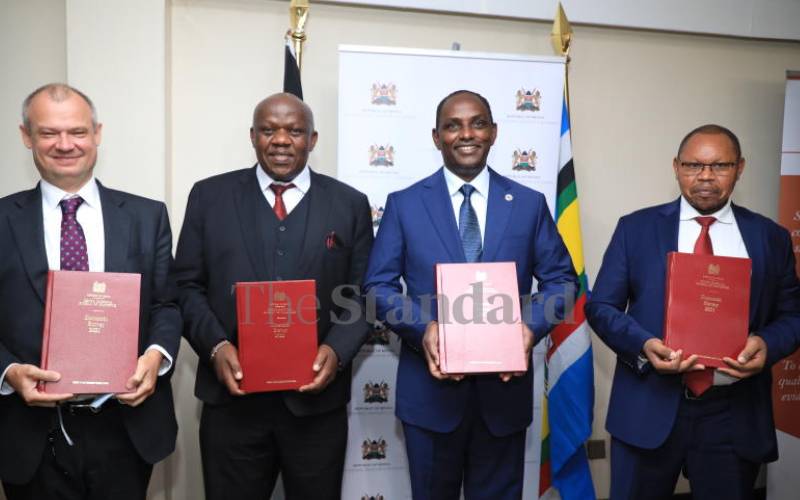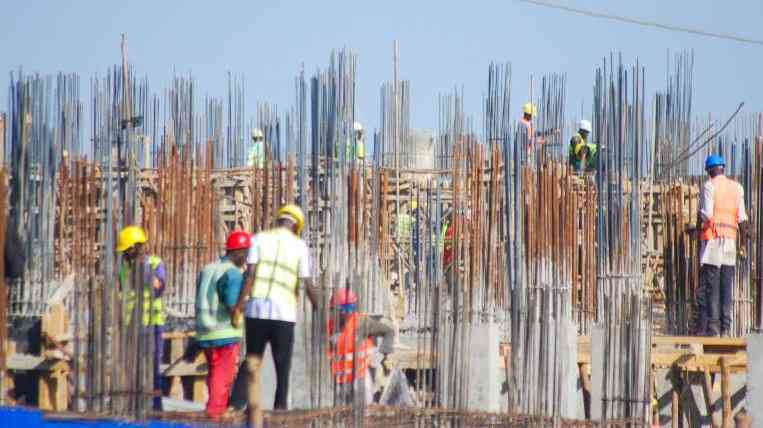×
The Standard e-Paper
Stay Informed, Even Offline

IMF representative to Kenya Tobias Rasmussen, Treasury CAS Eric Wafukho, Treasury CS Ukur Yatani and Planning PS Saitoti Torome during the launch of the 2021 Economic Survey report. [Wilberforce Okwiri, Standard]
There is a 30 per cent to 50 per cent probability of the country descending into political instability during this year’s General Elections, the International Monetary Fund (IMF) has warned.







